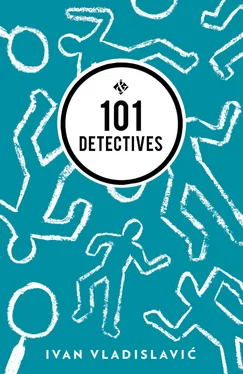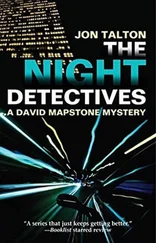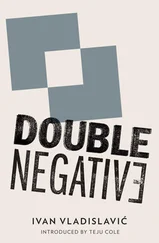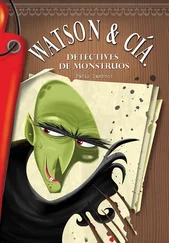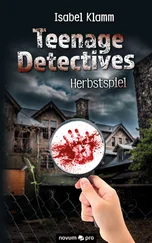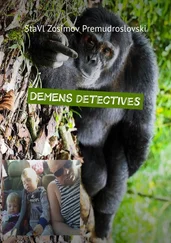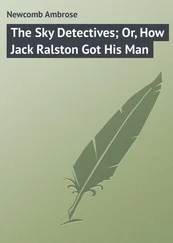Ivan Vladislavic - 101 Detectives
Здесь есть возможность читать онлайн «Ivan Vladislavic - 101 Detectives» весь текст электронной книги совершенно бесплатно (целиком полную версию без сокращений). В некоторых случаях можно слушать аудио, скачать через торрент в формате fb2 и присутствует краткое содержание. Год выпуска: 2015, Издательство: And Other Stories Publishing, Жанр: Современная проза, на английском языке. Описание произведения, (предисловие) а так же отзывы посетителей доступны на портале библиотеки ЛибКат.
- Название:101 Detectives
- Автор:
- Издательство:And Other Stories Publishing
- Жанр:
- Год:2015
- ISBN:нет данных
- Рейтинг книги:4 / 5. Голосов: 1
-
Избранное:Добавить в избранное
- Отзывы:
-
Ваша оценка:
- 80
- 1
- 2
- 3
- 4
- 5
101 Detectives: краткое содержание, описание и аннотация
Предлагаем к чтению аннотацию, описание, краткое содержание или предисловие (зависит от того, что написал сам автор книги «101 Detectives»). Если вы не нашли необходимую информацию о книге — напишите в комментариях, мы постараемся отыскать её.
and
, invites readers to do some detective work of their own. Each story can be read as a story, but many hide clues and patterns. Whether skewering extreme marketing techniques or constructing dystopian parallel universes, Vladislavic will make you look beyond appearances.
101 Detectives — читать онлайн бесплатно полную книгу (весь текст) целиком
Ниже представлен текст книги, разбитый по страницам. Система сохранения места последней прочитанной страницы, позволяет с удобством читать онлайн бесплатно книгу «101 Detectives», без необходимости каждый раз заново искать на чём Вы остановились. Поставьте закладку, и сможете в любой момент перейти на страницу, на которой закончили чтение.
Интервал:
Закладка:
Three people who had other arrangements for the evening and one who’d decided he’d had enough listening for one day slipped out of their rows, excuse me, thank you, and headed for the exits. Two people immediately put something — a coat, a spindled programme — on the empty seats to discourage someone else from sitting there. The student who had been leaning against the wall at the back quickly took the nearest vacated seat with nothing on it, noted that the shiny plastic still retained the imprint of the departed backside, and for that reason did not like the residual warmth she felt through the fabric of her skirt.
The poet Leonenko took out his notebook for the second time and wrote ‘Reader, open your eyes’ and after that a question mark in a circle, like a copyright notice. Earlier that week, his very first poem had been accepted for publication in Die Horen and his editor there had told him not to be scared to write things down. Every poem started with a single word.
Meanwhile Hans Günther Basch passed behind Maryam Akello, who had taken her seat again at the table. He reached out to squeeze her shoulder, in passing, but thought better of it at the last moment and instead squeezed the cushion of her chair. He put his copy of Zucker down on the lectern with the passages he intended to read flagged in yellow. He raised the microphone stand, and then dropped it and raised it again, as if he were measuring the difference in their heights, and then he puffed into the mesh bauble once. He took off his glasses and put them in the breast pocket of his jacket. His reading glasses with their pointy Brechtian frames were already hanging around his neck on a chain. He waited for the room to settle.
Without his glasses, the room looked shapeless and steamy. He thought he saw Horst and Sylvia with their heads together, and then Maryam in the front row. No, of course, it couldn’t be Maryam who was on the podium, it was Anya. No, no, not Anya, what was he thinking? Anya was in the book, she was dead, or rather translated from the dead. It was Florence.
Of the one hundred and forty-five people who happened to be watching Hans Günther then, eleven noticed the momentary bewilderment that crossed his face as he glanced at Maryam Akello and then at the audience, tucking in his chin as if he were afraid of being hit, and they put it down to nerves or irritation at how long the room was taking to come to order.
He remembered sitting at his kitchen table a few days after Maryam’s visit, with the manuscript open beside his laptop, inputting the revisions they had discussed. He was working through the grimmest passage in the book — it was among those he was about to read — where she described the murder of her sister. This had to be perfect. Even after every second word had been changed and changed again, he wondered whether the tone was right, whether he had captured the original, whether the depths of feeling in it had found some resonance in his own language. As he turned to a new page of the manuscript, he saw a note in red ink. No one but Maryam had touched these pages: she must have written it while he was out of the room. He looked closer. She had added a line in the last paragraph about the sugar. There were his questions in pencil: Is this really what you want to say? Did your English translator understand properly? Is there not a softer phrase? There was the note in blue ink he had written to himself in German at the end of the discussion, when she appeared to agree with him that some things were better left unsaid. And then there was this new line, her final word on the subject, written in blood in the narrow margin. A judgement.
An expectant hush drew him back into the present. For a moment the silent room felt like a clearing in the forest, cloven in two by the shimmering stream of the aisle. He became aware of the heads of the audience like moss-covered rocks, and the thoughts condensed above them like mist in the early morning, and then the trees beyond the window, receding into the dark. With both hands, he lifted the dangling glasses from his chest, placed them squarely before his eyes, and began.
I am in the middle now. In the beginning, when we walked, the ropes that keep us joined together pulled tight and every few paces one of us nearly fell or dropped the box or bundle she was carrying. In the beginning? It was only yesterday. Today we are moving like a creature with a supple spine and many arms and legs. They said we would soon learn to cooperate and we have. The reason is simple: they will kill us if we don’t. Drop the sorghum, the bullets, the radio and you will be cut loose like a vine. They will not waste a shot on you. We have learnt to keep so close together that there is slack in the ropes even when we clamber over rocks or slide down cuttings.
Yesterday, Anya was behind me. But last night they split us into two groups and this morning they tied us differently. Now she is right in front and I am in the middle. Between the two of us, the girl called Amito and a boy who never speaks and does not yet have a name. Behind me, our neighbour from Atiak, and then her niece, and then the other boy, the one who called out to Amito when the Commander took her away to the fire last night. I think he may be her brother and his name is Kidega.
Perhaps I could learn to tell us apart by the different sounds we make. Amito’s skirt is full and starchy and it makes a different sound to my own, which has been worn soft by washing. The Atiak neighbour swallows the air with a rasp as if its edges are sharp. I also hear the pad of our soles on the path and the creaking of the boxes and bags we carry on our heads, like the sound a cow makes as it moves. Under it all, my heart beating, setting the pace. It would be pleasant, almost a kind of walking music, if things were different, if we were somewhere else and not here with these men.
They make a noise of their own. I hear their heels striking the ground, the clinking of buckles, the stock of a rifle tapping against a button, water sloshing in bottles. If we are an animal, they are a machine, some heavy weapon we have to drag along.
There are seven of them too, one for each of us, although that is the wrong way to put it because it is no more than a coincidence. One of them could subdue us. They have guns and boots and we do not even have shoes. They are men and we are children. Anya is the eldest, I think, and she is not even eighteen yet. Perhaps they planned to capture more of us? That would explain why they are so angry. If we were twice as many, they could kill a few of us to teach the others a lesson. But now they have to take care of us or the whole business will be for nothing.
I can hardly tell which one is which. They keep changing places and they look the same in their uniforms and berets. One of them has a beard, and one has sunglasses with pink frames, and one of them is the Commander. Also I cannot look too hard, because when Kidega, the boy who may be Amito’s brother, looked at the Commander this morning, he hit him in the face and told him to keep his eyes on the Lord.
Mostly, I watch Anya, to give myself courage. I am glad she is in front of me. Once, when the path turned sharply, she looked at me just for a moment. It was the kind of look she would give me when Father was angry about something silly and there was no point in arguing with him. That one look was like a whole conversation. Since then, I have been watching the curve of her shoulder, the muscle in her arm raised to steady the box, the way her calves flex as she walks, and I know she is telling me something. Be strong.
Hans Günther Basch took a deep breath and put his thumb on the yellow Post-it that marked the second passage he meant to read. The audience’s attention had been drifting between the reader and the writer, settling now on Basch, telling the story, now on Akello, who had lived it and was perhaps reliving it, although her expression remained remote, which made it difficult for them to picture her in the role. The sticky note got caught on Basch’s forefinger and he lost his place. There was a silence, given texture by some scuffing and coughing, while he leafed through the book in search of the passage he had marked. Just a brief section, but important, if one was to convey the story. The attention converged on him and cohered. In the instant before it fell apart, he found the pencilled bracket at the start of the paragraph and went on.
Читать дальшеИнтервал:
Закладка:
Похожие книги на «101 Detectives»
Представляем Вашему вниманию похожие книги на «101 Detectives» списком для выбора. Мы отобрали схожую по названию и смыслу литературу в надежде предоставить читателям больше вариантов отыскать новые, интересные, ещё непрочитанные произведения.
Обсуждение, отзывы о книге «101 Detectives» и просто собственные мнения читателей. Оставьте ваши комментарии, напишите, что Вы думаете о произведении, его смысле или главных героях. Укажите что конкретно понравилось, а что нет, и почему Вы так считаете.
